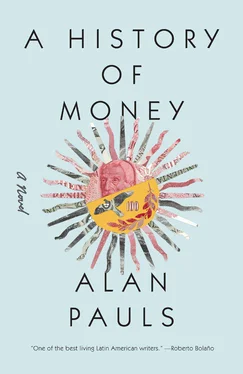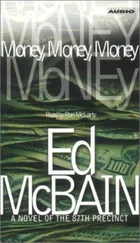How those last few days of January drag. At times, as a very young boy, intrigued by the way in which fifteen minutes on the clock can pass in slow motion or in the blink of an eye according to the time of day, the situation, the people he happens to be with, the weather, the light, his mood, the activities to come or just past, it occurs to him that maybe time isn’t universal at all but rather supremely subjective, a sort of local good that each family and each house and even each person produces in their own way, with their own methods and instruments, and in the most literal sense of producing, investing physical strength, labor, raw materials, everything that the evanescent consistency of time would seem to make irrelevant, as if it were more a domestic craft than the elusive passage that everyone insists it is.
As soon as the last week of January begins, the world gets heavier, and the hours begin to crawl along, gasping, as though climbing an endless hill. Rather than bringing the next one along, each day is an obstacle that delays and conceals it. Eventually time stops altogether — real time, whose passage he notices only for the way it draws in the only thing he wants in the world, to leave Mar del Plata once and for all, and with it the crackling of the crostini in the dead man’s mouth, the mansion, the requirement to be silent during siestas, the boredom of those lunches and dinners at which he invariably stays mute and almost stationary, intimidated by the rules of an etiquette he doesn’t understand and by the extravagant variety of cutlery laid out beside his plate, which he has no idea how or when to use, even though more than once, at the height of his torpor, shaken by the impulse to do something, anything, to dispel the clouds of drowsiness, he suddenly begins to classify them, reordering them by size, color, and shine, or uses them to draw lines in the white-linen tablecloth, until someone — never his mother, who took the decision from the word go to turn a blind eye when it comes to family-law disputes, but rather some member of his so-called stepfamily, a step-grandmother, step-uncle, or even the step-cousin who, though hardly a year or two older than him, speaks to him with incontestable authority, like a lieutenant to a private — scolds him from the other end of the table. Because the other time, the one that’s marked by the clock, the succession of meals and outfits, the sun’s work on skin, the bodies bathed, or the tiredness on people’s faces, the time that seems to advance, dragged along by the more or less regular meter of the days, has been reduced to a mere formality, a fiction intended to hide the paralysis of things.
The only relief comes from the safe-conduct that will get him out of there. The two bus tickets, his and his father’s, which he keeps himself, in his own hands. He can’t wait. He won’t even allow his father to buy them and bring them when he comes to fetch him at the gate of the mansion in Mar del Plata every February 1, as dictated by the equitable summer schedule — January for her, February for him — his parents draw up a few months after they separate, by common agreement, as they say, if it’s fair to call common an agreement orchestrated by the lawyer of just one of the parties, hers, under which his mother, making a show of a fortitude and conviction that she doesn’t possess, sets the agenda, and his father complies without objection, cowed by the same mixture of weariness, incompetence, and guilt with which he left the family home, renouncing his right to a lawyer, to his share of the blue 1957 Auto Unión, and to his percentage of the second-floor walk-up where they have lived together for a little more than two nightmarish years — both wedding gifts from his father-in-law — but not to the money with which his father-in-law entices him to leave the family home, which it would seem he needs to pay a backlog of debts.
He’s overcome by impatience. As the day of the journey draws near — it’s the middle of the month, and a new set of holidaymakers is arriving — he worries that they’ll run out of tickets and the trip will have to be postponed. And so he goes to buy them himself, in person, much too far in advance, from the bus station in Mar del Plata. The first few times, his mother goes with him. He’s old enough to understand the whole process perfectly, and the order it comes in — father, leave, travel, bus, ticket, buy — but he’s still so small that even on tiptoe he can’t maneuver his head into the ticket vendor’s line of vision. Later he goes by himself, on his bicycle, happy because this way — without witnesses — the idea of escaping Mar del Plata gains an invigorating dose of illegitimacy, even though it’s his mother who pays for the tickets and chooses which bus they’ll take; but also with his heart in his mouth, steering the bicycle with one hand and using the other, shoved as deep as it’ll go into his pocket, to count the bills two or three times per block to reassure himself that he hasn’t lost one.
Those newly bought tickets are guarded, kept like a secret. He takes them everywhere with him, into town, to the cinema, on bike rides and expeditions to abandoned lots, even to the restaurants by the port that he sometimes goes to with his stepfamily, proto — theme parks in which a couple of anchors, a few miserable buoys, some fishing rods hanging from the ceiling, and two or three drunk-looking papier-mâché sailors watching over the dining rooms are intended to capture the maritime world to which their menus — always limited to the same handful of options: mussels Provençal, sole meunière, langoustine — are also an insult, and where the dead man gets up to his old tricks, rebuking the waiters before he’s even sat down for the scandal of a breadbasket that’s overflowing with buns, kaiser rolls, bread sticks, and water biscuits, but that still lacks his favorite crostini, an oversight he takes personally, like a direct provocation, and which is sufficient cause for him to add the establishment to his ever-longer blacklist of restaurants. He disregards his mother, who tells him there’s no better place to lose them, and takes them to the beach, even though they force him to forgo his bathing suit — in whose pockets he might put them and then, at any moment, succumb to distraction, forget that he has them, and take them into the sea with him, with predictably horrendous consequences — and to roast in his pants at ninety-five degrees in the shade, condemned to contemplate the water from afar. He even keeps them with him while he sleeps, but not in his pajama pockets, where they’d be liable to fall out or be stolen by some stealthy person during the night. He keeps them clutched in his fist like a lucky charm, so that when the day finally comes, they’ve been folded and unfolded so many times, stuffed so deeply in his pockets, subjected to so much grazing and fondling, hidden in so many impregnable refuges, that the departure date and time and the seat numbers and even the name of the bus company are barely legible. This is the sorry state they’re in the afternoon he finally walks out the door of the mansion in Mar del Plata carrying his little navy-blue suitcase — alone, as he always insists to his mother, less out of a desire to be independent than to deny her those last twenty meters, which he’s convinced she would use to try to dissuade him from going, something she is very far from wanting to do, so thrilled is she by the prospect of a whole month off the job of being a mother — and then walks the long gravel path that leads to the street, clambers up onto the stone wall that extends from the front gate, and, still holding his suitcase, settles down to wait for his father to arrive.
It’s one of those radiant, perfectly idyllic days with no clouds or wind that are the reason summer exists, and nobody wants to waste it. Apart from him, and he’s not sorry. A blind joy swells his chest, leaving him breathless. He watches the procession of families passing by on their way to the beach, umbrellas, deck chairs, and polystyrene coolers in tow, delighted at the prospect of hours of sun, and notes the sorrowful look they all give him when they see him waiting by the gate, dressed from head to toe in street clothes and carrying a suitcase, like an orphan or some kind of invalid who’s forbidden to go to the beach. He scorns them silently. He compares his happiness at the thought that in just half an hour he will be with his father, on board the bus to Villa Gesell, with the banal enthusiasm on those faces that will return in two or three hours charred by the sun, and he feels like the luckiest person on earth. But fifteen minutes go by, and then twenty, and then another twenty-five, and he realizes with a faint shudder that he has exhausted the games he’d been using to distract himself from his impatience. He’s already massacred the trail of ants that had managed to scale his bare thigh and carry their cargo of leaves to the other side. He’s messed with the leaves of the privet that crowns the stone wall so much he’s practically pruned it. He’s sung, he’s counted — cars with even and odd license plates, bicycles, stray dogs, seconds — and he’s been wiping the snot from his nose and expertly, without even looking, sticking it all on the wall, sealing the slight indent that separates the blocks of stone. Half an hour passes: no sign of his father.
Читать дальше












